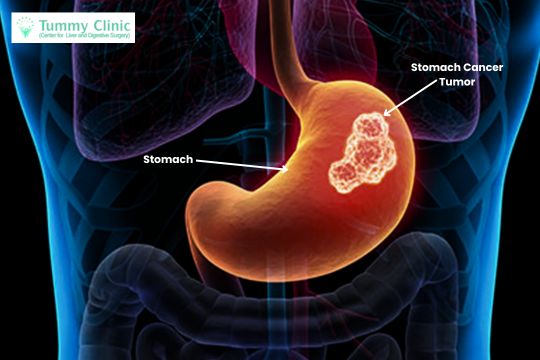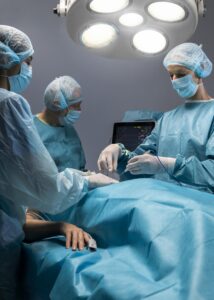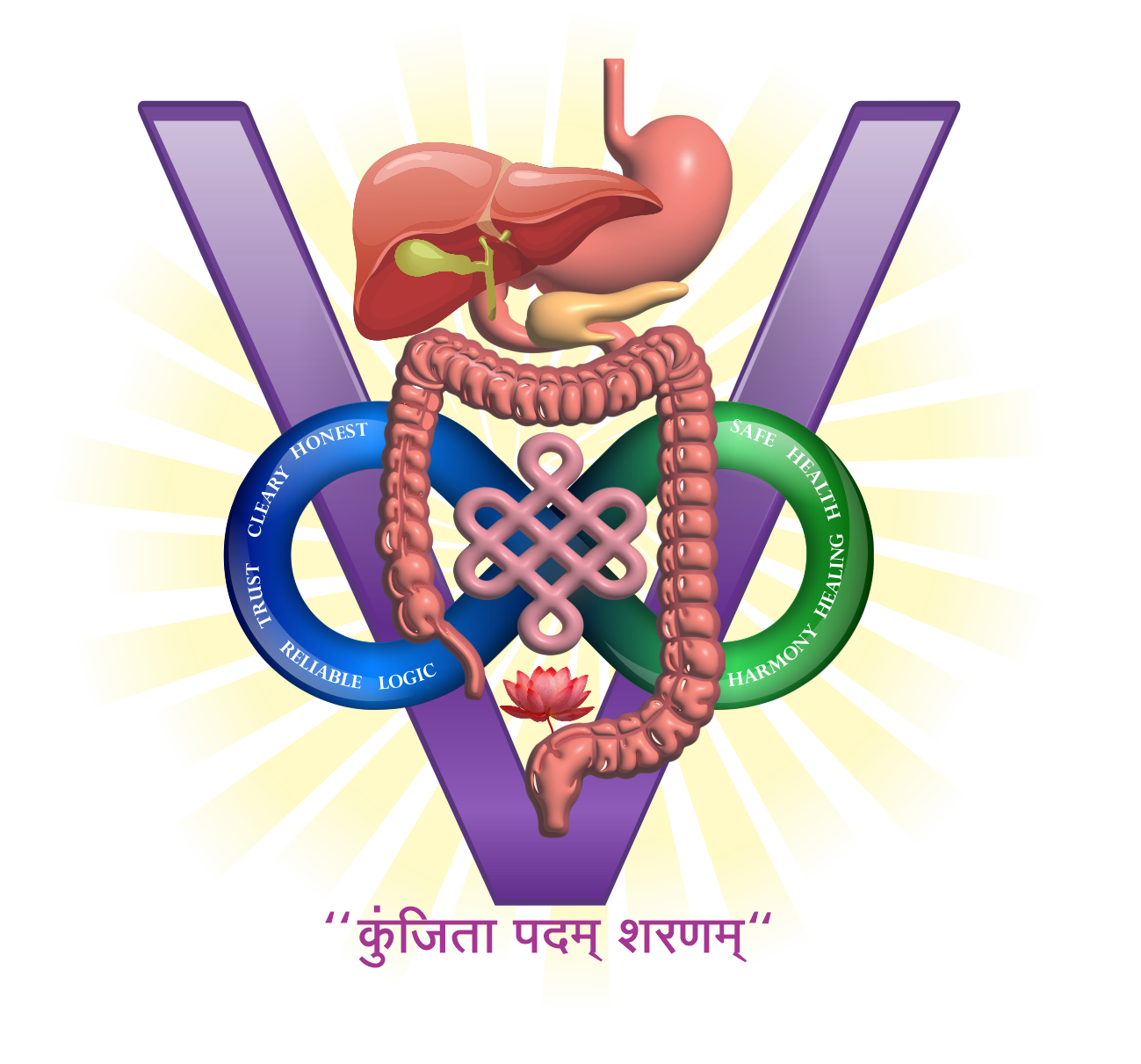Comprehensive Stomach Cancer Treatment in PCMC at Tummy Clinic
What is Stomach Cancer?
Stomach cancer typically begins in the mucosa, the innermost layer of the stomach, and can spread to other layers and parts of the body if not treated. There are several types of stomach cancer, with adenocarcinoma being the most common. Early detection and treatment are essential to improving outcomes and survival rates.

Understanding Stomach Cancer
Symptoms and Risk Factors
Common symptoms of stomach cancer include:
- Persistent indigestion or heartburn
- Unexplained weight loss
- Nausea and vomiting
- Stomach pain or discomfort
- Feeling full after eating small amounts of food
- Blood in the stool or vomit
Risk factors for stomach cancer include a family history of the disease, infection with Helicobacter pylori bacteria, smoking, a diet high in salty and smoked foods, and certain genetic conditions. Regular screenings and awareness of these risk factors can aid in early detection.
Diagnostic Process at Tummy Clinic
- Endoscopy
- Imaging Tests
- Biopsy
 An endoscopy is a primary tool for diagnosing stomach cancer. During this procedure, a thin, flexible tube with a camera is inserted through the mouth to examine the stomach lining. If suspicious areas are found, a biopsy can be taken for further analysis.
An endoscopy is a primary tool for diagnosing stomach cancer. During this procedure, a thin, flexible tube with a camera is inserted through the mouth to examine the stomach lining. If suspicious areas are found, a biopsy can be taken for further analysis.
- CT Scan: Provides detailed cross-sectional images of the stomach and surrounding organs to help determine the extent of cancer.
- MRI: Offers detailed images of soft tissues to identify cancer spread.
- PET Scan: Helps detect cancerous cells and assess the effectiveness of treatment.
A biopsy involves taking a small sample of tissue from the stomach to be analyzed under a microscope to confirm the presence of cancer cells. This is often done during an endoscopy.
Treatment Options Available
- Surgery
- Chemotherapy
- Radiation Therapy
- Subtotal Gastrectomy: Removal of part of the stomach affected by cancer.
- Total Gastrectomy: Removal of the entire stomach, with the esophagus connected to the small intestine to allow food passage.
Chemotherapy uses powerful drugs to kill cancer cells and is often used in conjunction with surgery or as a standalone treatment for advanced stomach cancer. It can help shrink tumors before surgery or eliminate remaining cancer cells post-surgery.
Radiation therapy uses high-energy rays to target and destroy cancer cells. It can be used before surgery to shrink tumors or after surgery to eliminate remaining cancer cells.
Targeted Therapy and Immunotherapy
- Targeted Therapy: Uses drugs designed to target specific molecules involved in cancer growth and spread. This approach can be more effective and cause fewer side effects than traditional chemotherapy.
- Immunotherapy: Enhances the body’s immune system to recognize and attack cancer cells. It is particularly useful for advanced or metastatic stomach cance
Comprehensive Care and Support Services
- Pain Management
- Nutritional Support
- Psychosocial Support
Why Choose Tummy Clinic for Stomach Cancer Treatment?
Choosing the right treatment center is crucial for achieving the best possible outcomes. Here’s why Tummy Clinic is your ideal choice for stomach cancer treatment in PCMC:
- Expertise and Experience: Our team of healthcare professionals specializes in the diagnosis and treatment of stomach cancer, with extensive experience in delivering personalized care.
- State-of-the-Art Facilities: We utilize the latest diagnostic and treatment technologies to ensure the highest quality of care for our patients.
- Patient-Centered Approach: At Tummy Clinic, we prioritize the needs and preferences of our patients, providing compassionate care and support throughout their journey.
Navigating Your Journey Towards Healing
Conclusion
For more information or to schedule an appointment, please visit our website or call us directly. Your health and well-being are our top priorities, and we’re here to support you every step of the way

